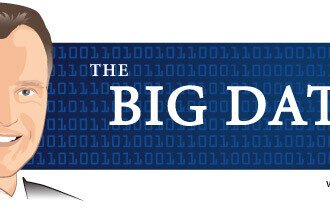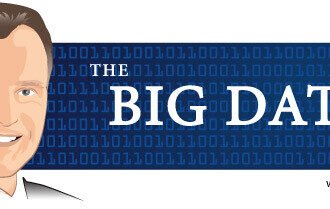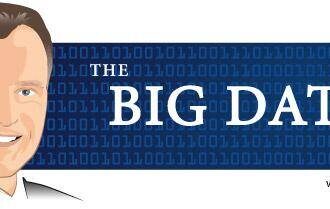
There are lots of roles that involve working with analytics and big data, and people doing these jobs give themselves many different names.
If you want to be employed working with data, searching the job sites will yield many possible roles – data engineer, information architect, data analyst – and the distinction is not always clear.

There are lots of roles that involve working with analytics and big data, and people doing these jobs give themselves many different names.
If you want to be employed working with data, searching the job sites will yield many possible roles – data engineer, information architect, data analyst – and the distinction is not always clear.
So here’s a selection of some of the most commonly used, as well as (in my experience) what they are likely to spend their time doing!
Data Analyst
Probably the most common title, though the responsibilities, salary and requirements can vary significantly. This person could find themselves part of a large team or, with a smaller company, taking sole responsibility for generating data-driven insights.
Most vacancies require a degree in mathematics, statistics or computing as well as relevant experience (up to several years for more highly paid positions). Common skills that you will be asked for include SQL, R, SAS and Excel, and often Hadoop, particularly if the job is geared to big data (as they increasingly are).
According to Payscale.com, in the United States the salary for roles with this title ranges from $36,139 to $77,696, with the median at $51,224. Having skills in statistical analytics, data modeling and SAS in your portfolio will push you towards the top end of that pay scale.
Data Scientist
Again, this could vary wildly depending on the organization, but a data scientist is more likely to work at the strategic side of a data-driven initiative, rather than the operational.
While, as the name implies, an analyst will spend a lot of their time combing the results of the analysis for insights, a data scientist is likely to spend time creating the algorithms that will produce the results. As the rather grandiose name implies, they are a scientist – which essentially means they will come up with theories, and run experiments in order to test them.
People with the job title data scientist tend to attract a higher salary than those titled data analyst, reflecting that this is often a more senior position within an organization, or that more experience is often required for these roles.
As well as the analytics skills that an analyst will be expected to have, data scientists will often be expected to have programming skills such as Java or Python and knowledge of machine learning.
They can expect to earn salaries between $63,192 and $142,118 in the US, with a median salary of $96,579.
Data Architect
A data architect is usually specifically responsible for designing the way a company or organization’s information will be stored. Relational databases, data warehouses and distributed storage systems are the tools of the trade. They may also be responsible to some extent for verifying the data and complying with regulation. However as with all these roles there are massive differences between companies and many data architects will also be involved with analytical projects.
Successful applicants for jobs with this title usually have a degree in computer science and expertise in databases. Those with knowledge of OracleDB are likely to out-earn those with Microsoft SQL experience and the salary ranges from $65,928 to $157,868 in the US, with a median of $105,581.
Chief Information Officer
The CIO is a senior business executive who takes overall responsibility for the data strategy. They are also often the senior member of staff overseeing all technical aspects of a company from basic IT infrastructure to big data analysis, though large firms may have a chief information officer and a chief technology officer. They will generally be in charge of a large team, with senior data scientists and analysts reporting directly to them, while they in turn report to the board of directors.
A variation to this job is the Chief Data Officer, which I come across more and more. It is basically a strategic c-level job, but with a particular focus on data.
Their vision and expertise will play a key part in driving the business, and they will have been hand-picked for this role by the board. They will also be responsible for setting IT policies and ensuring compliancy with laws and regulations.
Salaries at US firms for people with this job title range from $81,226 to $269,033 with a median of $142,269.
There are many other titles you may come across – I have seen vacancies for data engineers, insight directors, big data analysts, principle analysts, data expert, chief data officer – but I believe they all (broadly) fall into one of the categories I covered above.
There is a lot of overlap between these roles, as individual companies will all have their own ideas about how to distribute their workload between their staff. And in particular the titles data analyst and data scientist are often used as catch-alls, but I expect the distinctions will become more defined as data strategies become more widely adopted by business.
As always, I hope you found this post useful and I am always keen to get your comments and views.
You might also be interested in my new book: Big Data: Using Smart Big Data, Analytics and Metrics To Make Better Decisions and Improve Performance
For more, please check out my other posts in The Big Data Guru column and feel free to connect with me via:
Twitter, LinkedIn, Facebook, Slideshare and The Advanced Performance Institute.










